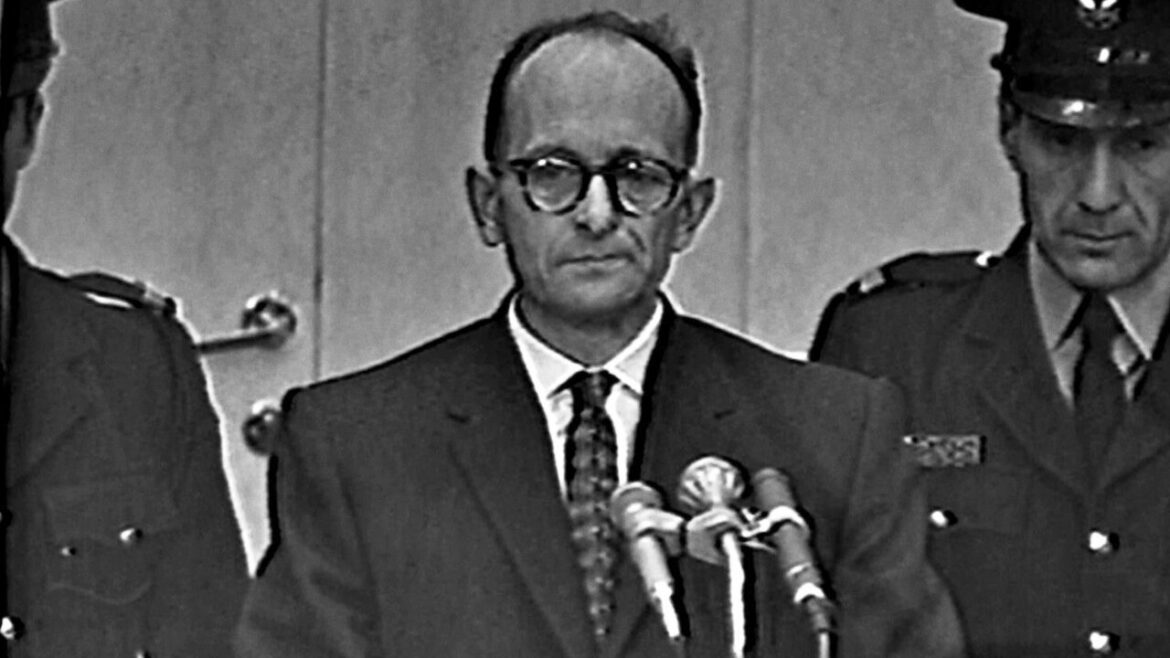If you have ever wondered about the lives of the children of infamous historical figures, you are not alone. One such intriguing character is Horst Adolf Eichmann, the son of notorious Nazi war criminal Adolf Eichmann. Born in 1940, Horst found himself at the center of a whirlwind of controversy and historical scrutiny due to his father’s infamous legacy.
Let’s take a closer look at Horst’s tumultuous journey.
Who Is Horst Adolf Eichmann?
Horst Adolf Eichmann was born in 1940 to Adolf Eichmann and Veronika Liebl. He was the couple’s second son out of four boys. Horst grew up during the height of his father’s involvement in the Nazi regime and the Holocaust.
Even after Adolf Eichmann’s capture in Argentina and subsequent execution in Israel in 1962, Horst remained a staunch defender of his father. He openly displayed his Nazi ideology well into adulthood.
Family Background And Early Life
As a child, Horst was immersed in Nazi ideology due to his father’s prominent role in the regime. Adolf Eichmann was a key figure in organizing the deportation of Jews to ghettos and concentration camps during World War II. Growing up, Horst and his brothers were exposed to their father’s extremist views. Adolf Eichmann reportedly showed no remorse for his actions, even justifying the Holocaust to his sons. This had a profound impact on shaping Horst’s own beliefs.
The Eichmann household was strictly authoritarian, with Adolf demanding obedience from his wife and children. Horst’s mother, Veronika, was described as submissive and supportive of her husband’s actions.
Life After His Father’s Trial
Following Adolf Eichmann’s highly publicized trial and execution in Israel in 1962, Horst remained devoted to his father’s memory and Nazi ideals. Along with his brother Klaus, Horst reportedly formed a Nazi terror cell in Argentina. The brothers carried out attacks targeting Jewish businesses and places of worship in the 1960s. During a police raid of their headquarters in 1962, authorities discovered Nazi propaganda materials, firearms, and Molotov cocktails.
Horst’s radical activities eventually led to his imprisonment in 1964 for illegal weapons possession and disseminating Nazi propaganda. He served a prison sentence, though the exact duration is unclear from the information provided.
Relationship With His Siblings
Horst had three brothers – Klaus, Dieter, and Ricardo. Of the four, Horst and Klaus were the most outspoken in their support of their father and Nazi ideology. The two collaborated in extremist activities in Argentina. Less is known about Horst’s relationships with Dieter and Ricardo. However, it appears that the Eichmann brothers had a complex dynamic, forever marked by the notoriety of their father.
The family lived under assumed names in Argentina, where Adolf Eichmann had fled after World War II to escape prosecution. Despite the name changes, the sons’ loyalty to their father seemed unwavering.
Public Statements and Controversies
Horst Eichmann gave some media statements over the years, consistently proclaiming his father’s innocence. He echoed Adolf Eichmann’s justifications for the Holocaust, showing no remorse or change of heart. Flying a swastika flag above the family home and wearing Nazi armbands, even in private, Horst openly displayed his alignment with Nazi ideology. His unapologetic stance generated public controversy and condemnation.
Horst’s inflammatory remarks and Nazi sympathies made headlines at times, serving as a troubling reminder of how the legacy of hatred can be passed through generations. His public statements were widely denounced.
Personal Life and Career
Details about Horst Eichmann’s personal life and career are limited in the information provided. It is known that he lived in Argentina for many years following his father’s execution. While in Argentina, Horst had a long-term relationship with Carmen Bretín Lindemann. She later shared recollections about the Eichmann family, offering a rare glimpse into their post-war lives.
Bretín Lindemann described an oppressive atmosphere in the Eichmann household, dominated by the sons’ worship of their father. Her accounts suggest that Adolf Eichmann’s influence continued to loom large over the family.
Impact Of His Father’s Actions On His Life
Horst Eichmann’s life was indelibly shaped by the notorious actions of his father. Growing up under the shadow of Adolf Eichmann’s crimes, Horst internalized Nazi ideology from a young age. His father’s refusal to accept responsibility and his justifications of the Holocaust profoundly influenced Horst’s own beliefs. This led him down a path of extremism and criminal activities as an adult.
Being the son of one of history’s most reviled figures undoubtedly brought intense public scrutiny and stigma to Horst’s life. His unapologetic embrace of Nazism only compounded the controversy surrounding him. In many ways, Horst Eichmann’s story illustrates the far-reaching and generational impact of hatred and extremist ideologies. It serves as a somber warning of how such beliefs can poison minds and perpetuate cycles of violence.
Final Words
Horst Adolf Eichmann’s life was a disturbing echo of his father’s dark legacy. Born into a family that played a central role in the horrors of the Holocaust, Horst absorbed Nazi ideology from an early age.
Despite global condemnation of Adolf Eichmann’s crimes, Horst remained a devoted disciple of his father’s twisted beliefs. His own extremist activities and public statements espousing Nazism brought further infamy to the Eichmann name. While many descendants of Nazi perpetrators have grappled with the guilt and shame of their ancestors’ actions, Horst Eichmann represents a troubling example of the persistence of hateful ideologies across generations.
His story serves as a grim reminder of the importance of breaking cycles of hatred and bigotry. It underscores the need for education, understanding, and a commitment to building a world free from the prejudices that have marred the past. Though Horst Eichmann passed away in 2015, the impact of his choices and his father’s heinous crimes continue to reverberate. May his troubled life serve as a cautionary tale for the vital importance of learning from history’s darkest chapters.




